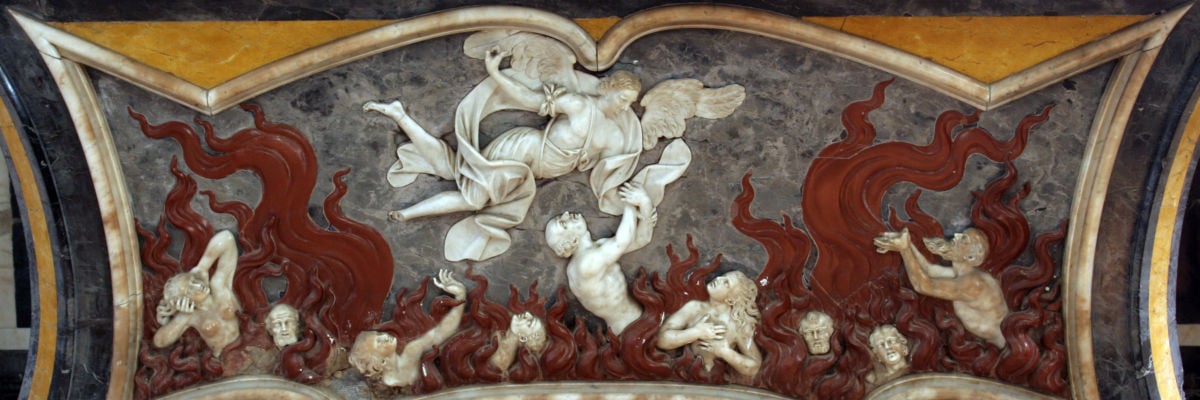
Some souls who die in God’s grace and friendship but are still imperfect require a final purification prior to entering into heaven, where no sin may exist (Rev. 21:27). Catholic Sacred Tradition calls this purgatory, a place or condition of purification.
The Catechism reminds us that this is “entirely different from the punishment of the damned” (1031). Fundamentalists say that the Catholic Church invented this teaching, but there is biblical evidence for it as well as a solid development of theology in the writings of scholars and popes through all periods of Church history.
The Jews believed there was a place for people who were “in prison” though not entirely damned (1 Pet. 3:19), and Paul refers to souls who will be saved but only through a penalty of fire (1 Cor. 3:15). Christ also referred to souls who may be forgiven in the next life (Matt. 12:32). What is certain is that purgatory remains a place of hope, for these souls and for the souls still on Earth. The latter, in their lack of precise knowledge but in the legitimate hope of Christ, may pray for these souls and commit to specific acts that benefit the souls of the faithful departed in efforts to more quickly release them into the eternal rest of heaven in God’s presence.
Throughout the year, and especially encouraged in the month of November, Catholics may obtain a plenary indulgence for eucharistic adoration, praying the rosary, reading or listening to Scripture, or making the way of the cross. Attached to this is the requirement to receive the sacraments of confession and Communion and to pray for the intention of the Holy Father. By these acts, souls in purgatory who might have no one to pray for them may receive special graces.



